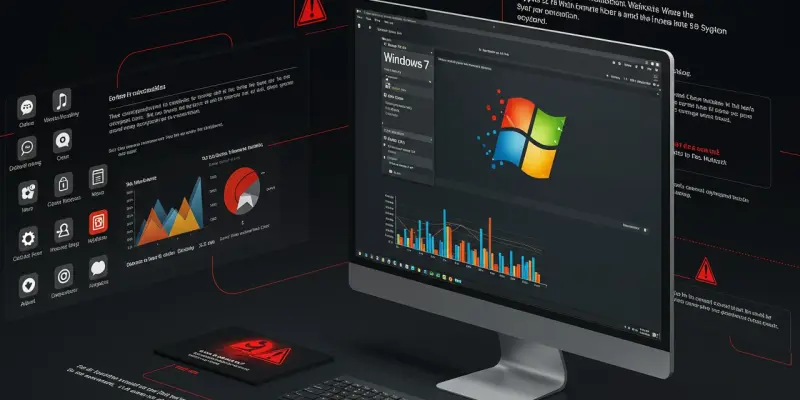In a world of rapid technological advancements, clinging to outdated operating systems carries profound risks. Windows 7, once a dominant player in personal computing, now sits perilously on the brink of obsolescence. Since Microsoft ceased its security updates in January 2020, this venerable software has become increasingly vulnerable to cyber threats. The absence of regular patches exposes users to countless known exploits, thereby compromising the integrity and security of their data. As applications and websites evolve, they gradually phase out support for older systems like Windows 7, complicating everyday tasks such as web browsing and accessing newer software versions. This technological gap is reflected starkly in the limited compatibility with contemporary hardware, further diminishing Windows 7’s functionality and placing its users at unnecessary risk.
Increasing Security Risks
The perpetual threat of malware and ransomware attacks amplifies the urgency of moving away from Windows 7. These forms of malicious software can easily exploit the system’s vulnerabilities, leading to potentially devastating consequences for individuals and businesses alike. The outdated nature of Windows 7 means that its defenses against such attacks are significantly weakened. This is not merely a hypothetical threat; genuine attacks have been documented, with victims often encountering substantial financial and personal losses. In addition, regulatory compliance and data protection laws increasingly demand the use of secure, updated systems. Businesses that choose to ignore these stipulations may face not only the wrath of cyberattacks but also legal consequences. Therefore, transitioning from Windows 7 is not just a matter of convenience but a crucial measure to safeguard valuable data and maintain compliance with modern standards.
Transitioning to Secure Systems
Given the significant risks linked to Windows 7, moving to a more modern operating system is a prudent move. Windows 11, for instance, offers advanced security features and works seamlessly with the newest hardware, providing users with robust protection against modern cyber threats. It acts as a sturdy shield for both personal and business data. Although the transition to a new OS might introduce initial hurdles, these are minimal compared to the lasting security advantages. Additionally, options like Linux provide affordable solutions while delivering top-notch protection and strong community backing. These choices come with updates and support that keep users safe from new threats. Sticking with Windows 7 today poses real dangers in the tech landscape, while upgrading ensures enhanced security, efficiency, and peace of mind. While Windows 7’s familiarity might be comforting, staying on it is risky. Switching to systems like Windows 11 or Linux enhances protection and functionality, essential for safety and efficiency in today’s digital world.

